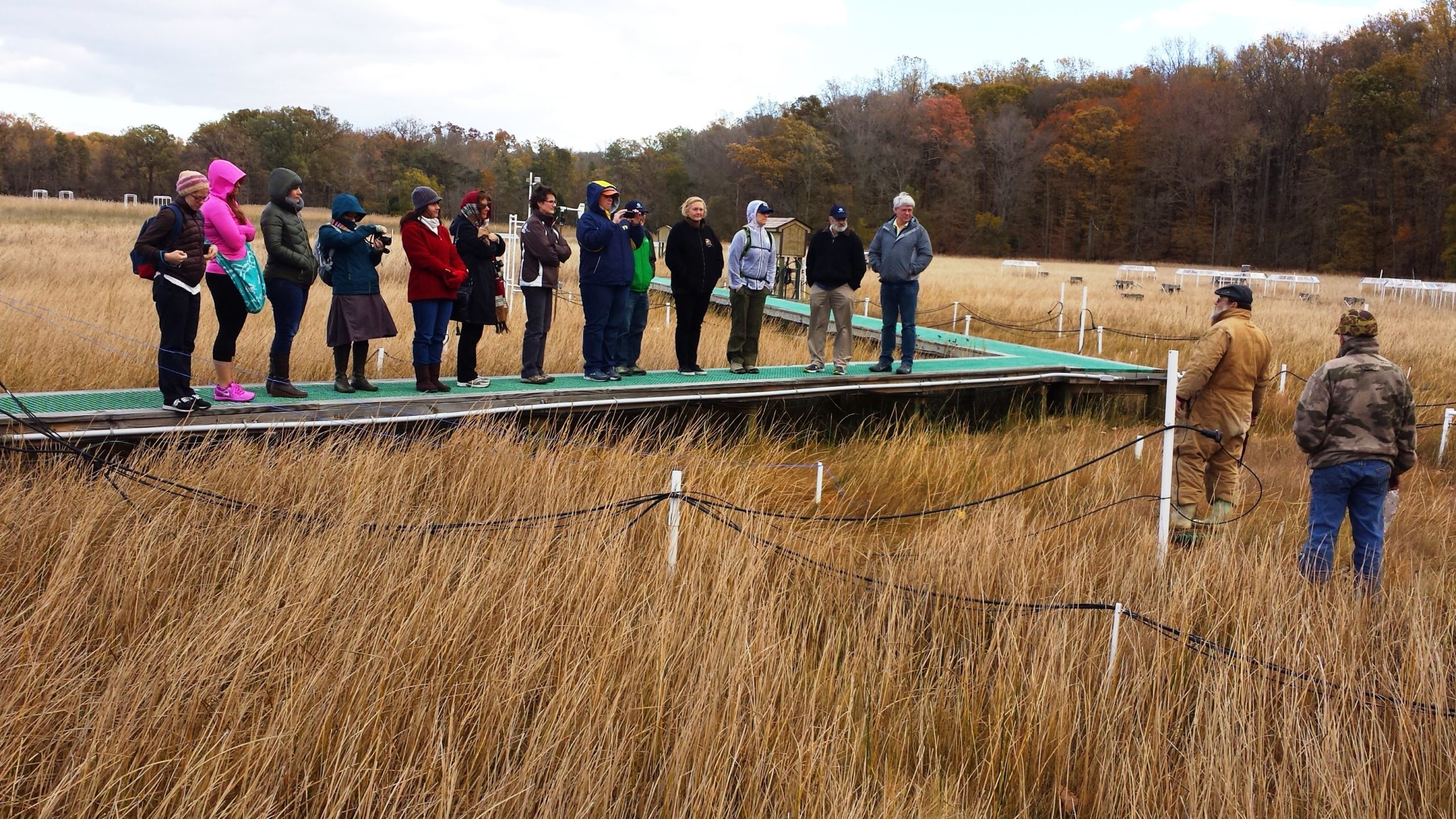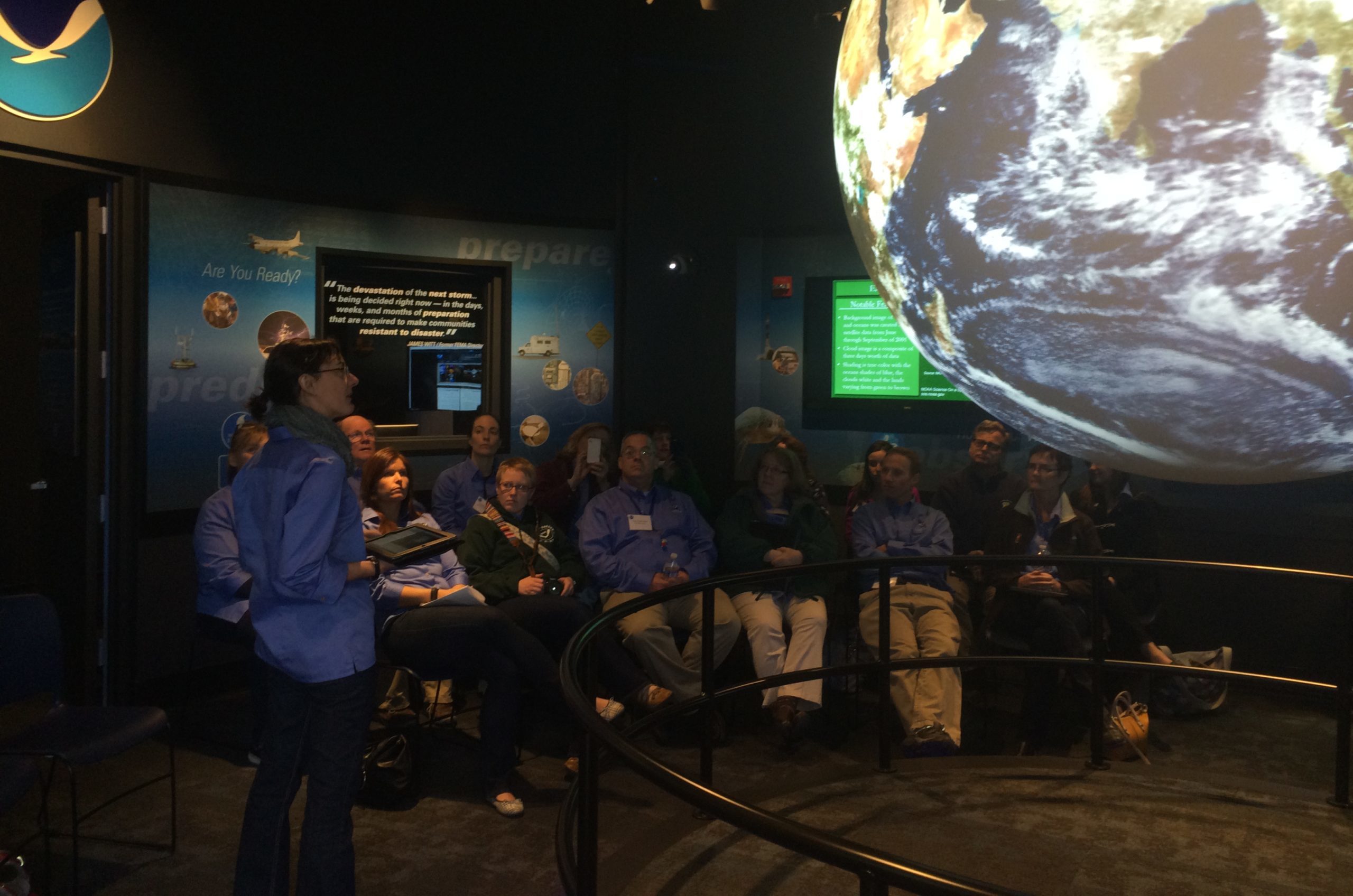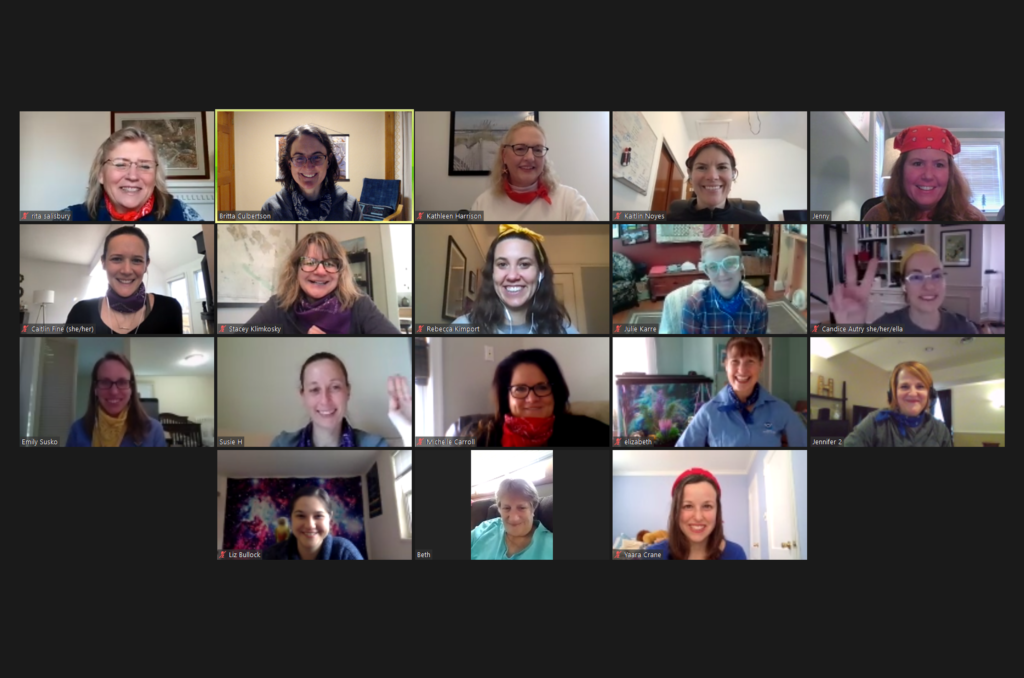Mid-Atlantic Region
Who are we?
The Mid-Atlantic Region includes Teacher at Sea alumni from Delaware, the District of Columbia, Maryland, Virginia, and West Virginia.
The goals for alumni regions are to build an understanding of physical and marine oceanography among alumni and their students, to establish strong relationships among alumni that emphasize collective participation of groups of teachers, and to develop relationships with NOAA scientists and broaden their connection to NOAA beyond the Teacher at Sea program.
Since the beginning of the Teacher at Sea Alumni Association, educators from this region met twice in person in 2014, virtually in 2021, and in a virtual book club in 2021. You can learn more about these activities in the sections below.

Regional Meetings and Alumni Map
Due to challenges and restrictions from the pandemic, in 2021, the Gulf of Mexico (GOM) Region Alumni were convened virtually on February 6th, 2021 for a 2.5 hour meeting in which alumni were able to reconnect, share stories about their Teacher at Sea experiences, share resources, and bond during a team-building virtual science museum scavenger hunt with Watson Adventures.
All alumni attending the meeting received a copy of the book Chesapeake Requiem: A Year with the Watermen of Vanishing Tangier Island by Earl Swift, and in the Spring of 2021, alumni from the region met again virtually for several book club discussions about the book. The goal of the book club was to create another opportunity for alumni to get to know each other and to share how they might use the regionally-specific content from the book in their classrooms.
NOAA’s Mid-Atlantic Teacher at Sea Alumni (MATASA) Workshop was held November 7-8, 2014 at the Smithsonian Environmental Research Center in Edgewater, Maryland. Seventeen Teacher at Sea Alumni (TASA) from the region (AL, AR, FL, KS, MO, MS, OK, TN, and TX) attended this two and a half day professional development workshop in order to strengthen oceanographic content knowledge, create relationships with NOAA scientists, gain knowledge about NOAA resources, and build an alumni network in their region.
Workshop Goals
The goals of the workshop are aligned with selected NOAA Teacher at Sea Program’s goals.
- Increase teachers’ understanding of earth system science.
- Build working relationships among teachers, emphasizing collective participation of groups of teachers.
- Build relationships between NOAA scientists and teachers in the Pacific Northwest region.
- Use NOAA data and resources in classroom activities.
- Use NOAA-related career information in classroom activities, when mentoring students and when working with colleagues.

The NOAA Mid-Atlantic Region Teacher at Sea Alumni Workshop was held on March 14-16, 2014 in Silver Spring, MD at NOAA’s Silver Spring Campus Headquarters. Seventeen Teacher at Sea alumni from the Mid-Atlantic region (DC, DE, MD, VA, WV) attended a three-day professional development workshop in order to strengthen oceanographic content knowledge and build an alumni network in their region. Alumni gained both physical and marine oceanographic content knowledge from NOAA scientists, NOAA speakers and hands-on activities. Content included: sea floor topography and mapping, wind-driven ocean currents, invertebrate zoology (focus on sponges and cnidarians), tide prediction, geodesy, and NOAA data in the classroom. Alumni toured NOAA’s Science on a Sphere, Gateway to NOAA, NOAA’s Science Center and Auditorium, and the Smithsonian National Museum of Natural History’s Q?rius Education Center.
Workshop Goals
The goals of the workshop are aligned with selected NOAA Teacher at Sea Program goals. In summary,
the goals are to enhance teachers’ science content knowledge, share NOAA resources, and begin to
build a network of alumni in the Mid-Atlantic region.
Short‐term Goals (Skills and Knowledge)
Teachers will:
• Understand how NOAA oceanic and atmospheric research is linked to National
Education Science Standards and Ocean Literacy Principles. (AMS/Maury Project modules)
Mid‐term Goals (Behavior and Action)
Teachers will:
• Use NOAA data and resources in classroom activities. (NOAA Data in the Classroom, Science
on a Sphere, Gateway to NOAA, NOAA National Geodetic Survey, Historic Tide Machine, NOAA
National Systemics Lab)
• Use NOAA‐related career information in classroom activities, when mentoring students and
when working with colleagues. (poster presentations, NOAA speakers, tour of NOAA
facilities)
Long‐term Goals (Social, Environmental, and Economic)
In support of NOAA’s mission, the Teacher at Sea Program will:
• Build an understanding of earth system science. (AMS/Maury Project modules, Science on a
Sphere, NOAA scientists and speakers)
o Model instruction of physical foundations of selected oceanographic topics and
issues and explore ways in which these understandings and concepts can be
incorporated in curricula.
2014 NOAA Mid-Atlantic Region Teacher at Sea Alumni Workshop Summary
2
Build working relationships among teachers, emphasizing collective participation of groups
of teachers.
Build relationships among NOAA scientists and teachers.


